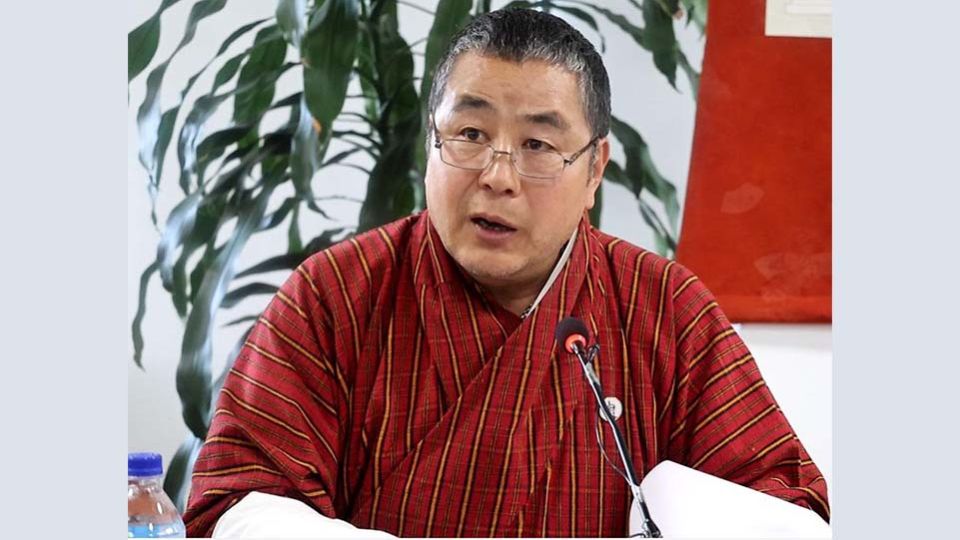May 13, 2025
THIMPHU – Bhutan suffers an estimated economic loss of Nu 6.5 billion every year due to alcohol-related harm—an amount that represents about 2.6 percent of the country’s Gross Domestic Product (GDP), according to internationally accepted costing models.
Of this total, Nu 2.5 billion is attributed to direct costs such as healthcare expenses, criminal incidents, and traffic accidents. The remaining Nu 4 billion stems from indirect losses, including reduced productivity, disability, and premature deaths.
Health Minister Tandin Wangchuk, who described alcohol-related issues as a pressing concern for Bhutan’s health sector, shared the figures.
The scale of alcohol consumption in the country is widespread.
As of December 2024, Bhutan had 9,717 licensed alcohol-selling outlets—roughly one for every 75 people. The health consequences are dire and growing. According to the Annual Health Bulletin 2024, cases of Alcohol-Related Liver Disease (ALD) rose from 2,393 in 2021 to 2,625 in 2023. Mortality from alcohol-related diseases also remains troubling. While the number of deaths dropped slightly from 146 in 2022 to 129 in 2023, the toll in earlier years was even higher, with 169 deaths in 2020 and 176 in 2021.
From 2020 to 2024, Bhutan recorded 4,516 road accidents—791 of them were linked to alcohol consumption. Alcohol has also been a major contributor to crime and violence. Police data shows that between 2020 and 2024, there were 1,527 reported domestic violence cases connected to alcohol use.
Policy response and public health interventions
According to Lyonpo Tandin Wangchuk, the Ministry has intensified its efforts to address alcohol-related harm in partnership with various stakeholders. The ministry treats the issue as a serious public health concern, demanding comprehensive and sustained action.
Nationwide public campaigns and school-based programmes have been launched to raise awareness of the risks of alcohol abuse, especially among youth. Community leaders, youth groups, and civil society organisations (CSOs) are being engaged to promote alcohol-free events and encourage positive lifestyle changes.
In the healthcare sector, alcohol screening and brief intervention services have been integrated into all primary health care facilities. Basic counselling, assessment, and referral services are available across the country, while detoxification and treatment services are offered at district and referral hospitals.
Detoxification services have been made available in all dzongkhag hospitals. For individuals needing longer-term rehabilitation, referrals are made to facilities run by the Chithuen Phendhey Association and the Bhutan Institute of Wellbeing.
The government is also advocating for stricter regulation of alcohol outlets, including limiting their number and operating hours. Discussions are underway to reintroduce designated “dry days” to discourage routine alcohol use.
“We are pushing for strict enforcement against sales to minors, including mandatory CID checks at bars and entertainment venues,” said Lyonpo Tandin Wangchuk.
In coordination with the Royal Bhutan Police and the Bhutan Transport and Construction Authority (BTCA), the government is increasing sobriety checkpoints, tightening penalties, and intensifying public education on the dangers of drinking and driving.
A proposal is being considered to lower the legal blood alcohol concentration (BAC) limit for drivers from 0.08 percent to 0.05 percent—aligning Bhutan’s standards with global best practices.
Cultural and religious engagement
Recognising the cultural context of alcohol use, the government is engaging religious institutions to integrate alcohol prevention messages into religious ceremonies and community events such as Moenlam Chhenmo and household rituals. All drungchens and health coordinators from the Zhung Dratshang and Choedhey Lhentshog are being trained to educate the public on the risks of non-communicable diseases, including harmful alcohol use.
Controlling home-brewed alcohol
The Ministry of Health is working with local governments to develop guidelines for safer brewing practices in communities where homemade alcohol is common. Efforts are also being made to regulate the number and location of alcohol outlets, limit accessibility, and advocate for higher excise taxes to make alcohol less affordable.
Towards a long-term solution
Looking ahead, the ministry is formulating a new multisectoral action plan, building on lessons from the 2015–2020 strategy. The plan includes proposals for higher taxes on alcohol, minimum pricing policies, and strengthened restrictions on advertising and sponsorship, especially those targeting young people.
To ensure long-term impact, the ministry is improving early detection and treatment for alcohol use disorders through training, digital tools, and integrated health services.
CSOs and NGOs are playing a key role in supporting rehabilitation and reintegration efforts for affected individuals.


